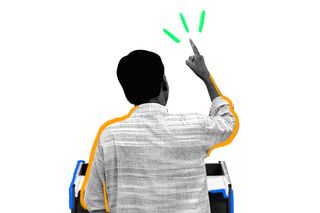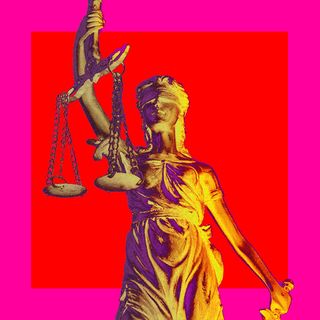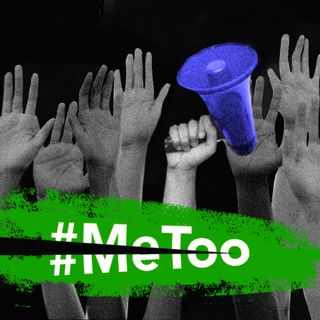
Hate Speeches by Political, Religious Leaders ‘Bulldoze Constitutional Ethos’: Delhi HC
“Hate speeches are the beginning point of attacks… that can range from discrimination to ostracism, ghettoization, deportation, and, even to genocide,” the Delhi HC noted.

“Hate speeches especially delivered by elected representatives, political and religious leaders based on religion, caste, region, or ethnicity militate against the concept of fraternity, bulldoze the constitutional ethos, and violate… the Constitution,” the Delhi High Court remarked yesterday.
The court made the observation while hearing a plea for the registration of FIRs against Anurag Thakur and Parvesh Verma — leaders of the ruling party, BJP — for delivering hate speeches. The Delhi HC admitted to favoring “stringent peremptory action” against hate speech by leaders with a mass appeal. However, it had to dismiss the present plea on procedural grounds — stating that the petitioners hadn’t exhausted their legal recourses before approaching its premises, against what judicial precedents dictate.
In January 2020, a video had surfaced of Thakur addressing a crowd that he prompted them with the slogan “Desh ke gaddaaron ko…” The crowd replied by chanting, “…goli maaro saalon ko!” The speech — which translates to “shoot the traitors of the country” — was, basically, Islamophobic and incited violence against a community. The petitioners reportedly argued that the speech, in fact, had tangible consequences — by resulting in two separate instances of firing on students of Jamia Millia Islamia, a university in Delhi that is often targeted by Hindutva supporters.
Verma, in the same month, had called the sit-in protestors at Shaheen Bagh “rapists and murderers.” He added that they “will enter your houses, they will pick up your sisters and daughters, rape them and kill them… Today, there is time. If the people of Delhi wake up now, it will be good. Then they will stay safe.”
Related on The Swaddle:
What Delhi’s Anti‑Muslim Chants Can Teach Us About ‘Ethnic Outbidding’
In the past, too, hate speech has been linked with violence and brutality. As Shahrukh Alam, a practicing lawyer from New Delhi, wrote in The Wire this year, hate speech is, essentially, “systemic bullying with an eye towards exclusivist, political power” that can “cause actual material harm through the social, economic, and political marginalization of a community.”
The Council For Foreign Relations (CFR), an American non-partisan, non-profit think tank, noted in a 2019 report that the global rise of hate speech has, naturally, led to a rise in violence against minorities worldwide — be it through lynchings, mass shootings, or even ethnic cleansing. While the CFR’s report referenced global incidents, India was within the scope of its review too. It noted explicitly that hate speech through social media — like WhatsApp, for instance — led to a marked increase in communal violence here since the present ruling party came to power in 2014.
The United Nations (UN) echoes Alam’s sentiments, adding that the repercussions of hate speech don’t just include violence, but even socio-economic exclusion.
The UN, in fact, goes another step ahead to contend that hate speech doesn’t just impact targeted communities, but also threatens society’s peace and its holistic development too by abhorring the pillars of “tolerance, inclusion, [and] diversity” and “lay[ing] the ground for conflicts and tensions.”
Related on The Swaddle:
How Schools, Colleges Socialize Indians Into Perpetuating Islamophobia
India already has a history of communal violence. “Vigilantes have beaten people accused of disrespecting cows, considered holy by some Hindus; dragged couples out of trains, cafes, and homes on suspicion that Hindu women might be seduced by Muslim men; and barged into religious gatherings where they suspect people are being converted,” a New York Times’ report states.
As such, the unfettered surge in hate speech poses unprecedented dangers for the country. As the Times’ report continues, “The hate speech is stoking communal tensions in a country where small triggers have incited mass-death tragedies… [G]lobal human rights organizations and local activists, as well as India’s retired security chiefs, have warned that the violent rhetoric has reached a dangerous new pitch. With right-wing messages spreading rapidly through social media and the government hesitant to take action, they are concerned that a singular event… could lead to widespread violence that would be difficult to contain.”
In other words, what the experts believe to be the way out is strict action to put an end to the burgeoning culture of hate speech in the country. Although the court’s hands were seemingly tied in this matter, it did come down heavily on the crime of hate speech itself.
In words that one can hope will hold some degree of persuasive value in future trials against the crime, the court said, “Hate speeches are almost invariably targeted towards a community to impart a psychological impact on their psyche, creating fear in the process. [They] are the beginning point of attacks against the targeted community that can range from discrimination to ostracism, ghettoization, deportation, and, even to genocide.”
Devrupa Rakshit is an Associate Editor at The Swaddle. She is a lawyer by education, a poet by accident, a painter by shaukh, and autistic by birth. You can find her on Instagram @devruparakshit.
Related


The Debate Around Making Rape Laws Gender Neutral
